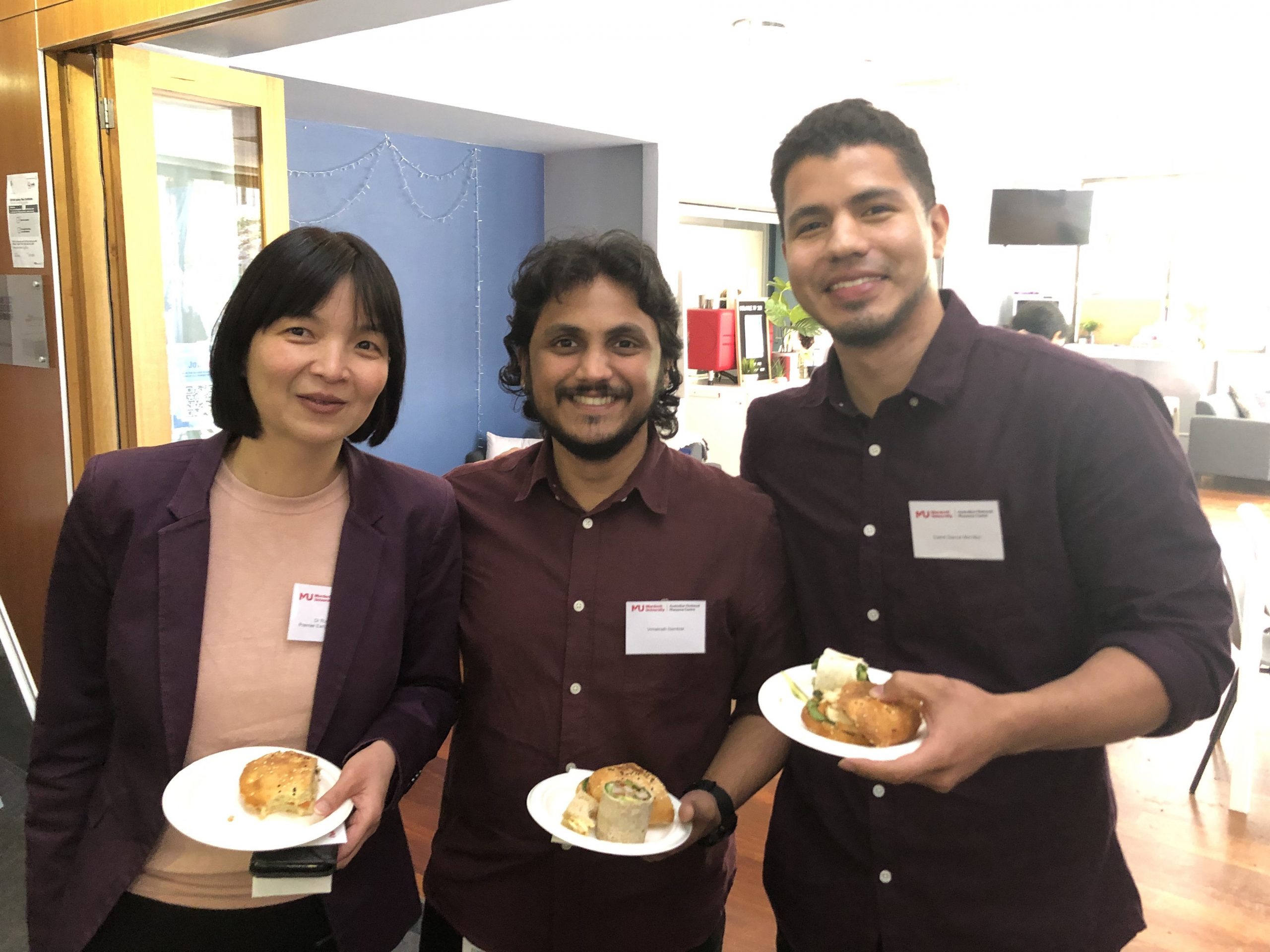On 14 October 2022, the Australian National Phenome Centre (ANPC) and Centre for Computational and Systems Medicine (CCSM) organised a successful inaugural research symposium on precision nutrition at Murdoch University that featured early findings from Future Food Systems CRC’s ‘Food metabolomic library’ project.
The symposium was well attended and included representatives from various Western Australian universities and industries.
Dr Ruey Leng Loo, Western Australia (WA) Premier’s Mid-Career Fellow, chaired the event.
“We achieved the aims of the symposium, which were to promote networking opportunities between industry and academia communities in WA, and to give Higher Degree by Research (HDR) students and early-career researchers (ECR) a platform to present their work to experts within the field,” Dr Loo said.
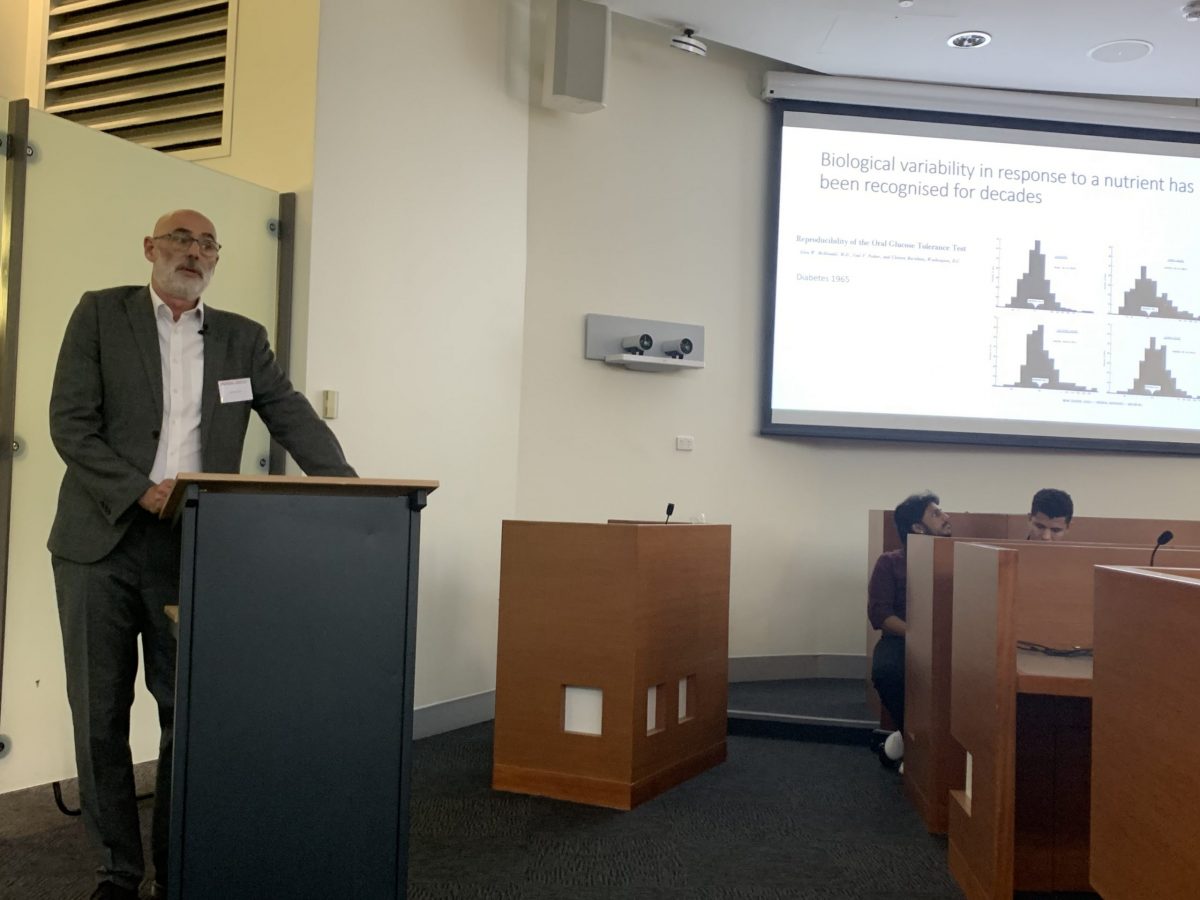
Prof. Gary Frost stressed the importance of addressing the complexity of different individuals’ responses to different foods in his address to the 2022 Precision Nutrition Symposium in Perth, WA. Image courtesy of Ruey Leng Loo
Academic and industry perspectives
Professor Gary Frost from Imperial College London, in the United Kingdom, a keynote speaker at the Symposium, stressed the importance of addressing the complexity of different people’s responses to different foods and gave a detailed presentation of new methods for progressing science in this area.
Associate Professor Claus Christophersen from WA’s Edith Cowan University gave an eloquent presentation on methods for assessing the impact of food on the human microbiome. A/Prof. Christophersen’s presentation was echoed by that of Professor Elaine Holmes, ARC Laureate Fellow, who talked about the integration of metabolic and microbial data in dietary studies.
David Doepel of Melville Park Farm highlighted the importance of flavours, urging researchers to bear in mind that consumers are unlikely to eat foods that do not taste good, despite their nutritional value. Mr Doepel further emphasised the connection between memory and people’s dietary choices. This underpins an important factor for consideration in precision nutrition.
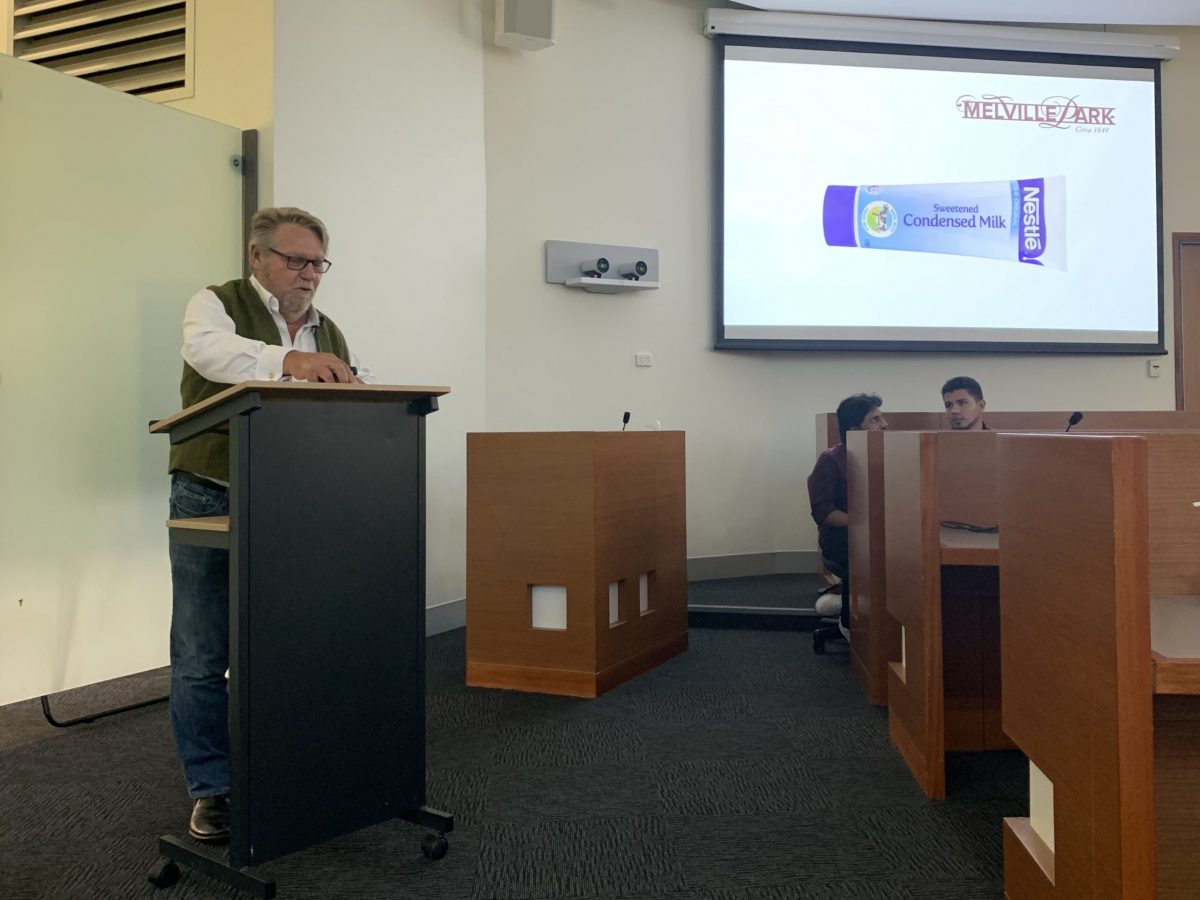
Mr David Doepel discussed ‘precision taste’ at the Precision Nutrition Symposium. Image courtesy of Ruey Leng Loo
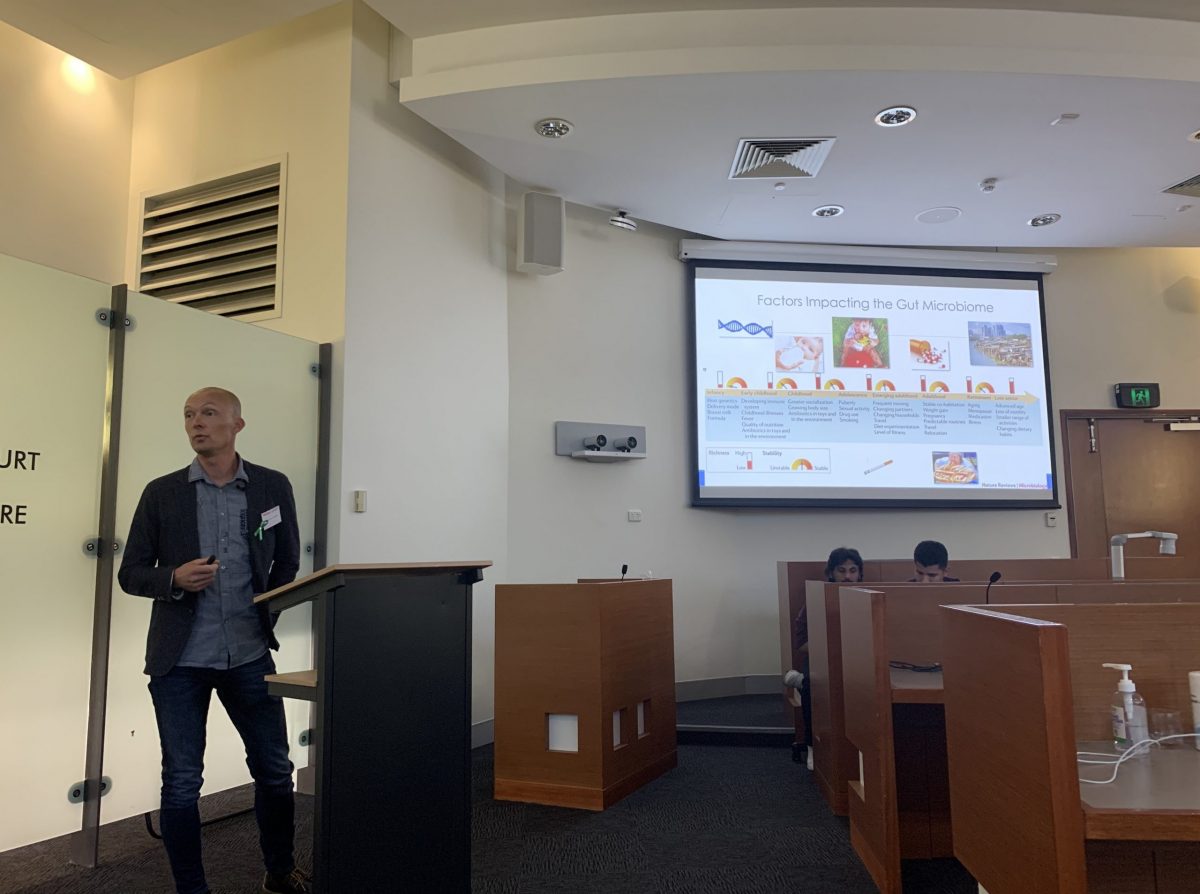
Associate Professor Claus Christophersen explained what constitutes a healthy gut. Image courtesy of Ruey Leng Loo
Other industry speakers included Dr Carlotta Petti from myDNA and academic Dr Rachelle Pretorius from the Telethon Kids Institute.
Next-generation precision nutrition experts
HDR and ECR presented their work either as posters or five-minute ‘flash talks’. The flash talks spanned a diverse range of topics, including the use of state-of-the-art analytical instruments to precisely characterise foods and biological specimens.
Yimin Wang‘s presentation on the analysis of high-value Bravo™ apples using nuclear magnetic resonance received the Judges Award. Future Food Systems Cooperative Research Centre (FFSCRC) PhD scholar Charlotte Rowley, who presented her work on dietary intake and maternal metabolic profiles during pregnancy, won the People’s Choice Award.
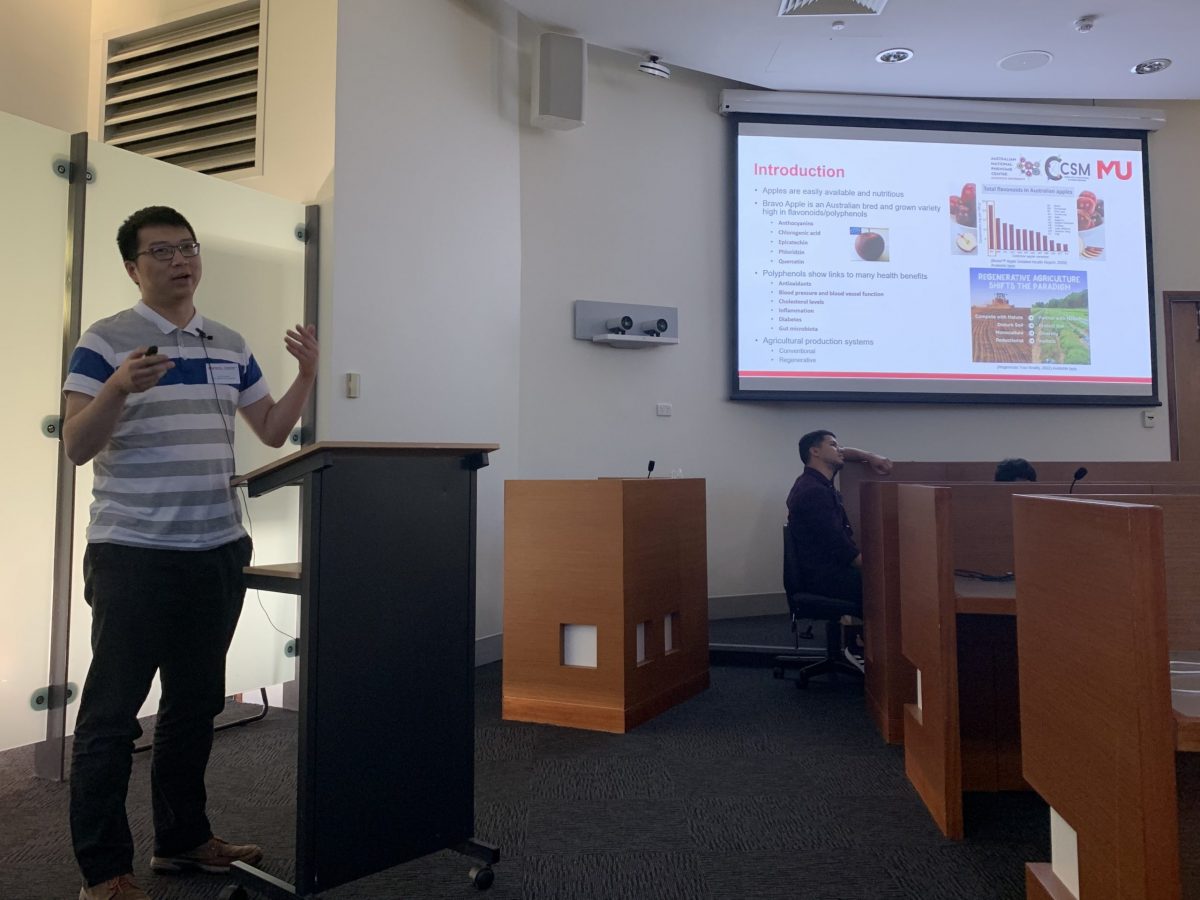
Yimin Wang presented his work on the analysis of high-value Bravo™ apples using nuclear magnetic resonance. Image courtesy of Ruey Leng Loo
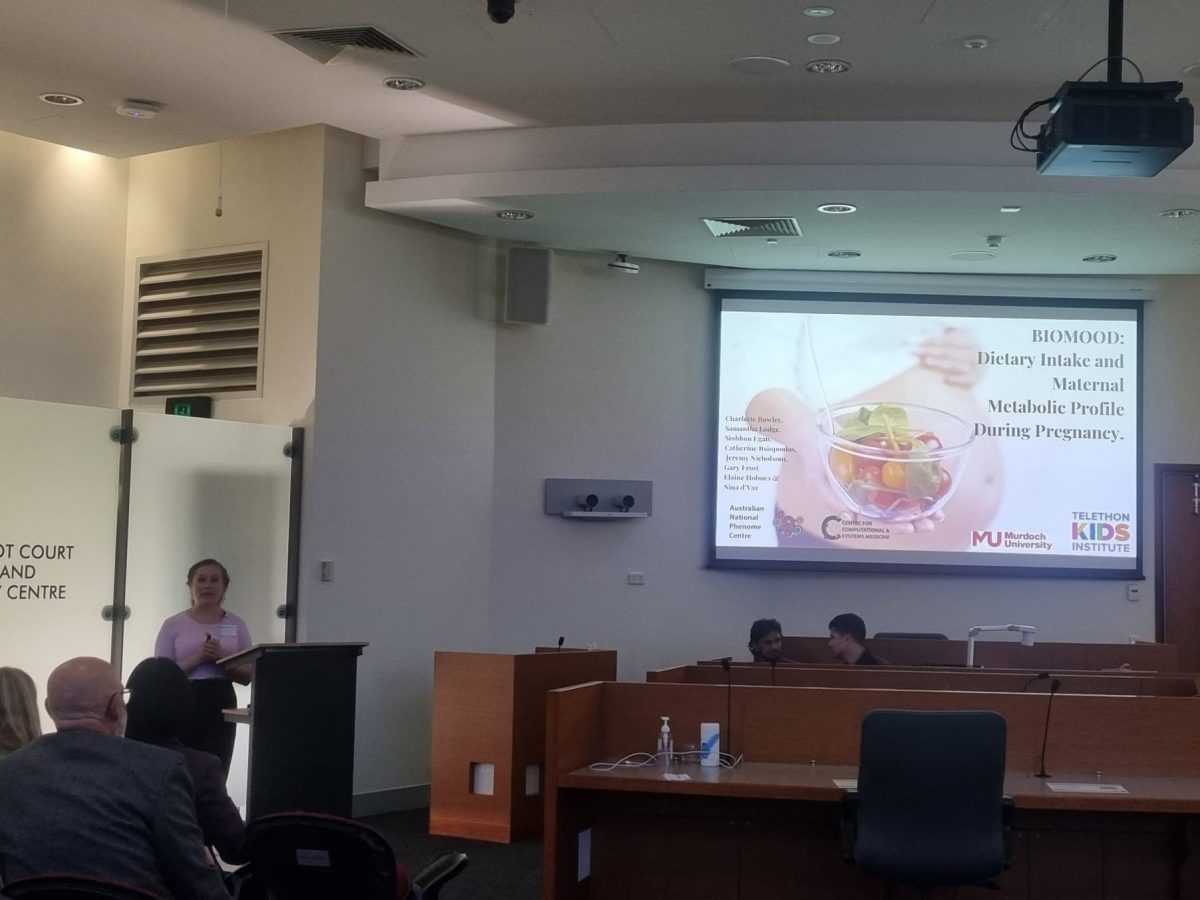
Future Food Systems CRC PhD student Charlotte Rowley presented her work on the ‘Food metabolomic library’ project, which involves producing molecular-level profiles of WA-produced olive oil and fruit. Image courtesy of Samantha Lodge
Both Wang and Rowley’s works are part of the ‘Food metabolomic library’ project, a Future Food Systems CRC project led by Dr Ruey Leng Loo, in collaboration with the WA Government Department of Primary Industries and Regional Development (DPIRD) and Bruker Biospin, an international analytical manufacturer.
“The FFSCRC project aims to connect nutritional quality and composition with positive healthcare outcomes through nutritional health claims,” Dr Loo said. “Charlotte and Yimin presented some of the preliminary results at the symposium.”
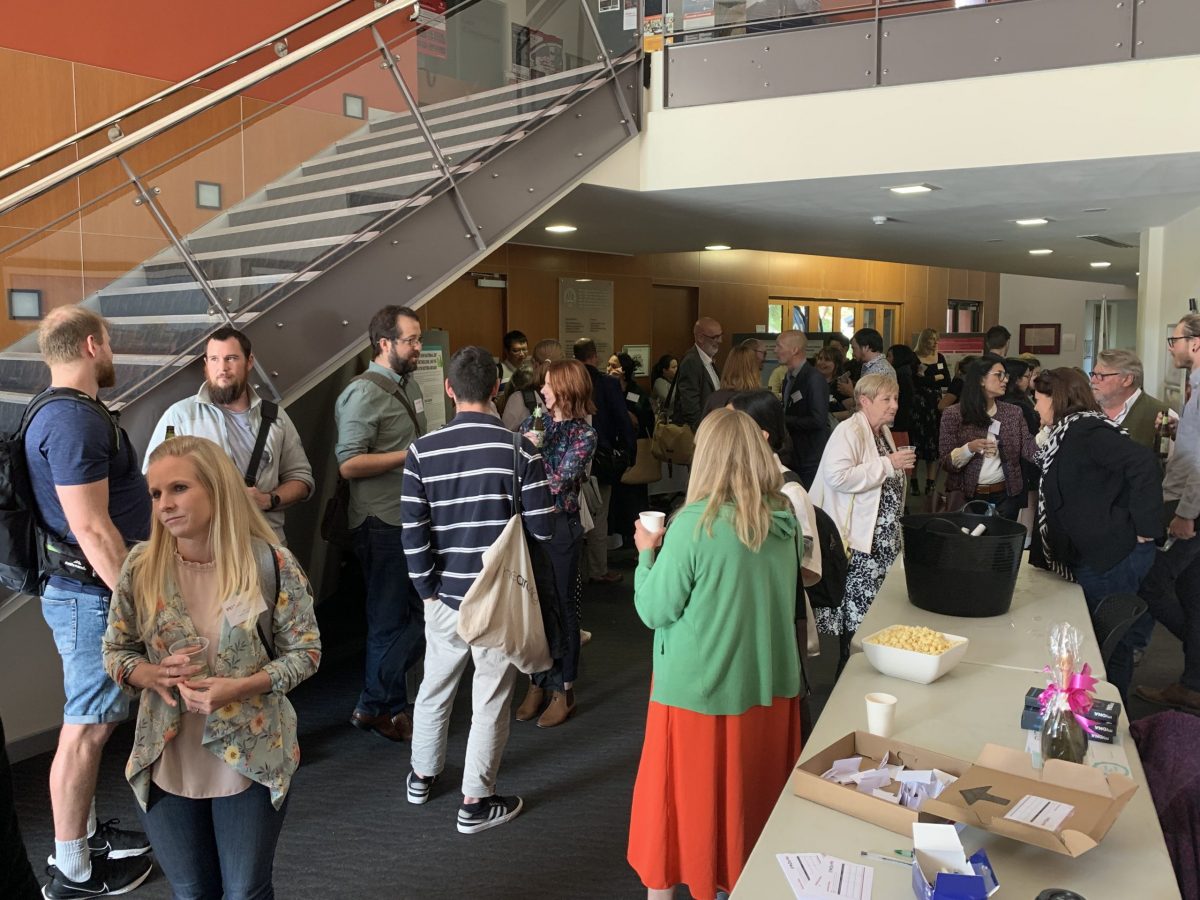
Sundowner and networking post-symposium. Image courtesy of Ruey Leng Loo
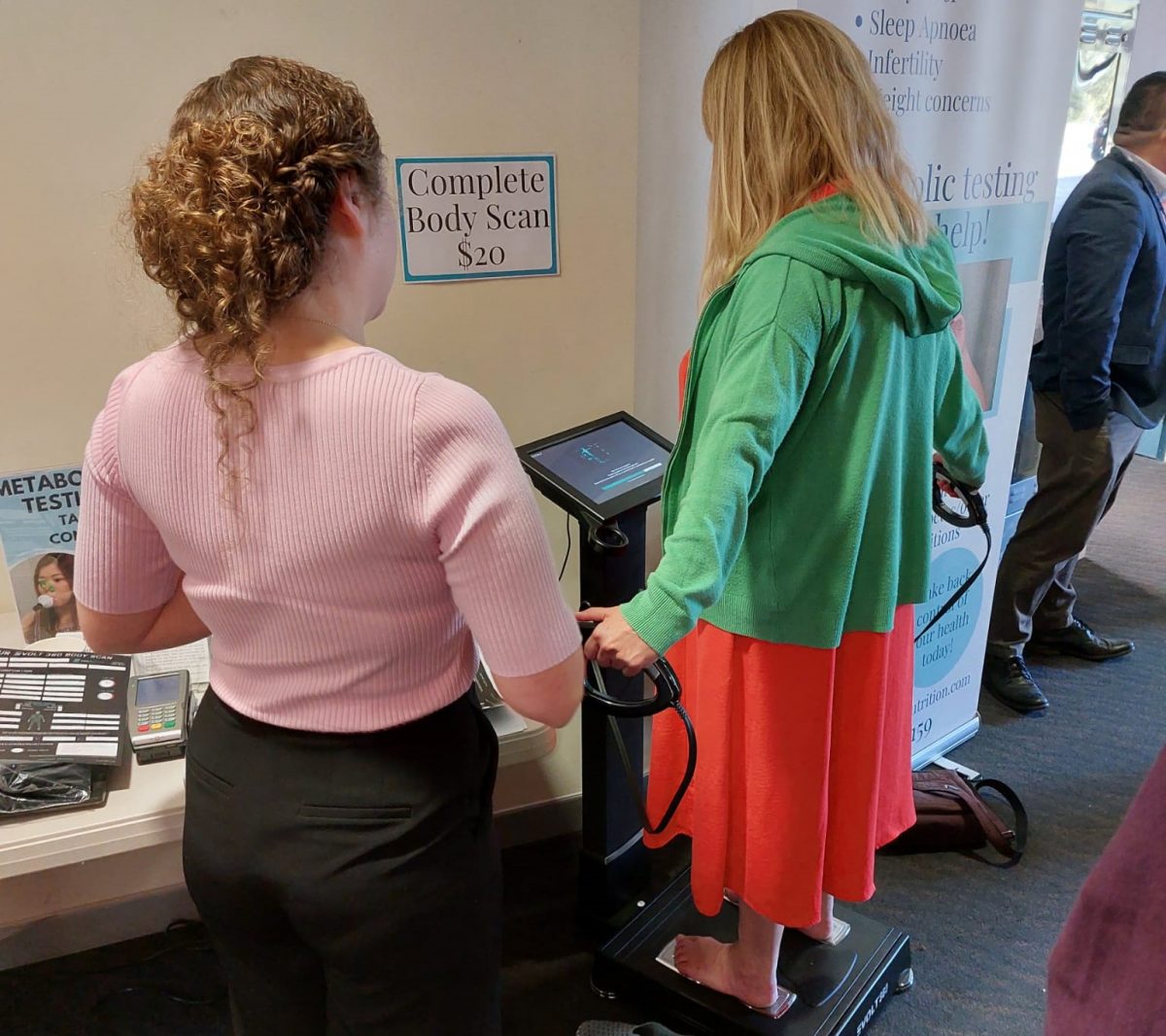
An attendee using a body scan, Habit for Health. Credit: Charlotte Rowley
A snapshot of world-leading research
“This symposium represents a snapshot of the world-leading personalised nutrition research currently going on in WA – and the critical role of molecular phenomics in unscrambling the complex multi-system interactions that underpin health,” said Professor Jeremy Nicholson, Director of the Australian National Phenome Centre (ANPC).
“Nutritional control is an essential component of global preventive medicine strategies, and one element of our lives that we can manipulate to effect health improvements at both the personal and population level.
“We hope that this will be the first of many ANPC catalysed network events that will enable future precision medicine and population healthcare initiatives,” Prof. Nicholson said.
Event Chair Dr Loo was also pleased with the outcomes of the event.
“We want to capitalise on the successes of this symposium and are planning for a Precision Medicine Symposium in 2023,” she said. “So watch this space.”
Article author: Dr Ruey Leng Loo, Murdoch University
Lead image: (L-R): Dr Ruey Leng Loo, ANPC Senior Researcher and event Chair, with Murdoch University PhDs Vimalnath Nambiar Mathoosoothenen and David Garcia Mendez at the 2022 Precision Nutrition Symposium in Perth, WA. Credit: Yimin Wang


